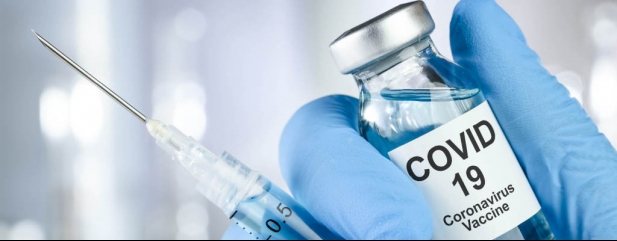Archived article
Please note that tax, investment, pension and ISA rules can change and the information and any views contained in this article may now be inaccurate.
Is the vaccine news a game-changer or just a good start?

There are high expectations for Pfizer and BioNTech to win with their Covid-19 vaccine following the latest trial update which triggered a global stock market rally and installed hope in people around the world.
The two companies will collate data until the third week of November before submitting to the regulators for approval. Safety is very important given the scale of deployment with potentially billions of perfectly healthy people being given the vaccine.
Assuming more data confirms the 90% effectiveness of the vaccine there are other considerations as more news arrives over the coming weeks.
The first big question is for how long the vaccine will provide immunity because there is no guarantee that vaccine-induced immunity will be any better than that afforded by infection.
Second, the science behind this vaccine is known as mRNA and it has never been commercialised which means no one knows for sure how to manufacture it at scale. The technology involves injecting a blueprint of the vaccine into the cells of the body so that they can make copies of the vaccine.
The vaccine needs a cold storage supply-chain because it has to be stored at minus 80 degrees centigrade. The lack of available cold refrigeration infrastructure, especially in poorer areas of the globe, may hinder distribution of the vaccine.
According to Shore Capital it is unclear at this point whether the study included patients with severe symptoms which is very important because if it didn’t it would mean the vaccine can so far only make mild cases more mild and not prevent hospitalisations.
Pfizer has targeted production of around 50 million doses for 2020 and 1.3 billion next year. Various countries have already secured agreements with Pfizer including the UK with 30 million doses. Shore Capital points out that because two doses are required and assuming wastage this would only cover around 12 million patients. It takes 28 days from the first injection to attain immunity.
The broker notes that the world will need more than one vaccine because a range of sub-groups are likely to respond differently to vaccines. Mark Brewer, analyst at FinnCap, argues that global herd immunity requires 60% to 70% of the population to become immune which given the huge numbers involved could take years to achieve.
In short, don’t expect the economy to open up quickly even if a vaccine is approved.
Two late-stage trials with results expected in the next few weeks are University of Oxford’s and AstraZeneca’s (AZN) study of compound AZD1222 and Moderna’s vaccine candidate mRNA-1273.
Both these studies include patients with severe Covid-19 symptoms and so a positive result may be more meaningful in terms of reducing hospitalisations.
Important information:
These articles are provided by Shares magazine which is published by AJ Bell Media, a part of AJ Bell. Shares is not written by AJ Bell.
Shares is provided for your general information and use and is not a personal recommendation to invest. It is not intended to be relied upon by you in making or not making any investment decisions. The investments referred to in these articles will not be suitable for all investors. If in doubt please seek appropriate independent financial advice.
Investors acting on the information in these articles do so at their own risk and AJ Bell Media and its staff do not accept liability for losses suffered by investors as a result of their investment decisions.

 magazine
magazine








